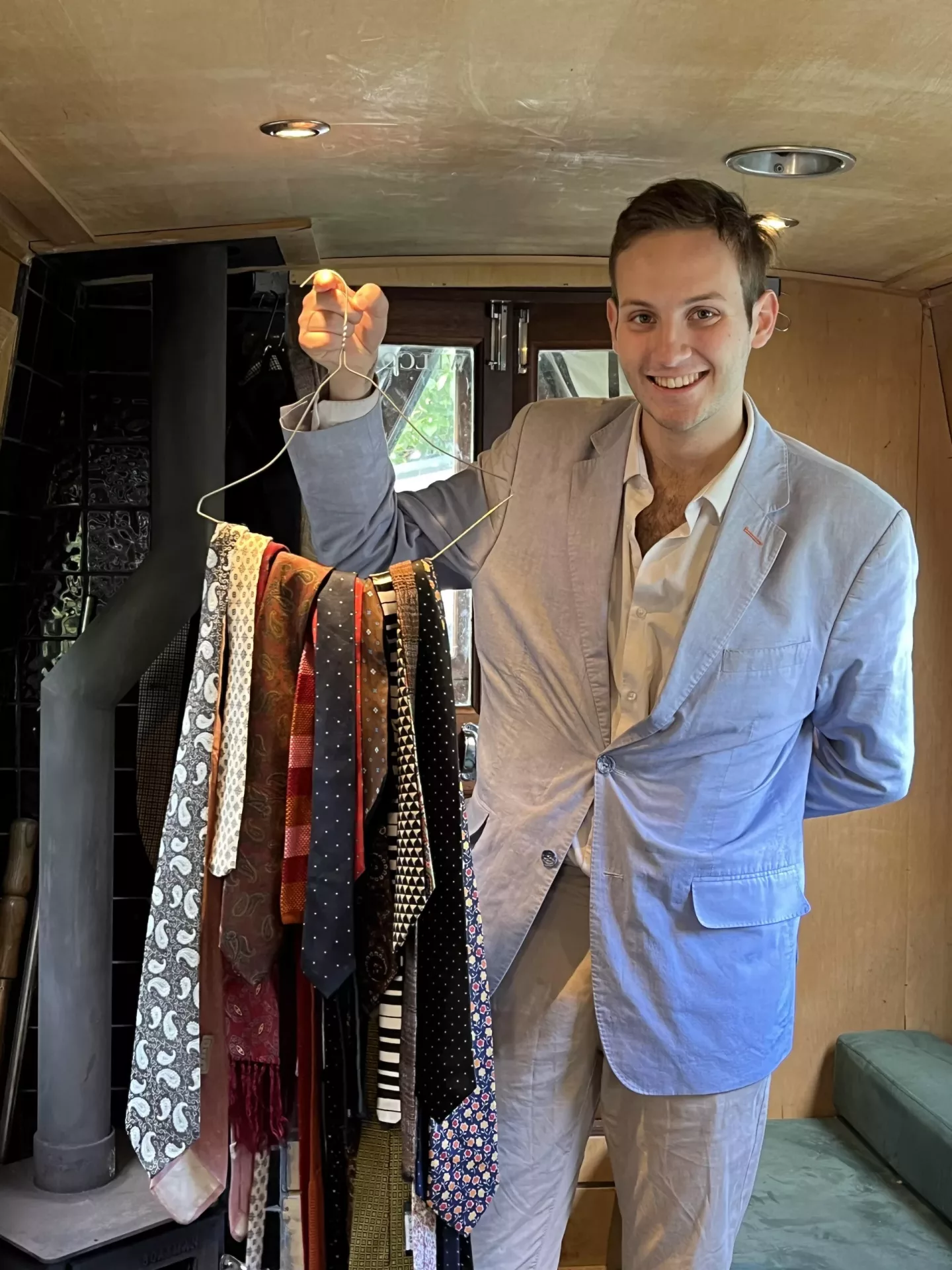“Hello and happy Sunday to you,” Tobi Adegboyega says to the camera. Walking through the ivy-draped quads of Trinity College, he talks about the importance of such institutions and expresses his gratitude for the invitation to speak “on this ground”. The video, shared with his 365,000 followers on Instagram, says in its caption that “[a]t Oxford University this weekend I got to answer some questions and share some thoughts with students and leaders of the Trinity College”.
However, Cherwell can reveal Adegboyega was not invited by the University or the student group he addressed. Instead, he had been brought in by friend and fellow member of NXTION Family, Phadria Prendergast, using the event to publicise the group’s work.
Adegboyega, widely known as ‘Pastor Tobi’, founded and led the Salvation Proclaimers Anointed Church (SPAC Nation). This group initially shot to fame in 2018 for encouraging young people to abandon crime and gangs and to set themselves onto a better path. However, it has since faced numerous allegations over financial fraud and sexual misconduct and has been shut down due to insolvency. Adegboyega and other former members of SPAC Nation have subsequently formed a new church, NXTION Family.
Adegboyega, or ‘Pastor Tobi’, is not alone in using the image of Oxford to advertise his controversial brand.
The event
Adegboyega’s video depicts a “Women in Media panel”, held in Trinity College on 5th May. The event was organised by Oxford Women in Business (OxWIB) and The W magazine, which Prendergast leads. She was the main speaker throughout the event and at the end, she invited Adegboyega to the stage for a 20 minute one on one interview that had not been planned or sanctioned by OxWIB.
The W initially reached out to OxWIB in March, looking to co-host a “Women in Media” panel. Over the course of several weeks, the two organisations discussed logistics and what speakers to confirm, benefiting from Prendergast’s “extensive network”.
By May 3rd, The W had sent OxWIB an email with a list of already confirmed speakers, stating that it would be “fully confirmed by the end of the day”. The list did not include Tobi Adegboyega nor did The W send the promised final list.
Following a Zoom call later that day, OxWIB set a clear deadline for speaker bio changes later that evening because of “the short notice on speaker confirmations”, and emphasised that after the deadline “[we] won’t be able to make any changes”. They also stated that an OxWIB member would be mediating the questions and panel discussion, although on the day Prendergast dominated the questioning.
Cherwell has seen the invite The W emailed to panelists. It talked at length about the event being hosted at Oxford University, about The W and about Prendergast, whom it claimed was a “University of Oxford mentor”. The invitation also stressed that the panel would explore the underrespentation of women in the media. OxWIB was not mentioned once.
Once speakers confirmed that they could attend, they were sent a finalised list of the programme, which included many genuine female editors. It stated that Prendergast would be moderating all the interviews, with OxWIB being reduced to introductions.
The finalised programme did not mention Adegboyega, only indicating that there would be a “Special Guest interview”. Programmes handed out on the day only stated that Prendergast would be interviewing “PT”, Adegboyega’s nickname used in NXTION Family.
Adegboyega’s visit was a surprise to all, including the female media figures invited to speak on the panel. One of the panelists told Cherwell: “I agreed [to come] as I felt it would be a good thing to support younger people with an interest in the media and speak to the students at Oxford uni.
“I had no idea who the guest speaker was and was genuinely surprised by his presence (especially after having Googled him on the way home). It was entirely out of kilter with everyone else.”
Another added: “As I sat there I thought their discussion was odd and wondered what the agenda was, and double checked the program to see who it was. Which if you refer to the program will see that it only mentions special guest.[sic]”
The W previously told Cherwell Adegboyega was invited “becuase he is well versed and experienced in handling the media”, and called him a “media matriarch”.
At the event and during the networking that followed, The W collected the contact information of all attendees. They told Cherwell “[t]here was no guest list and on the day no one took note of attendees via OxWIB, therefore The W created a guest list on the day of every attendee on arrival whilst they received goody bags”.
OxWIB are advising anyone who attended the event to email [email protected], urging attendees “not to engage with anyone you gave contact information to at the event”.
The video
Two days after the event, Adegboyega posted a video to Instagram. Standing in Trinity’s quad, he tells the camera “I count it a great privilege to be invited to speak on this ground”, while the caption claims he is there to address “leaders of the Trinity College”.
A spokesperson for Trinity College told Cherwell that “contrary to the claims of the video, the event was not a college or University-hosted event and no college or University staff were present to meet with Mr Adegboyega”. They added that they “consider his video to be misrepresenting the nature of his visit to the college”. Trinity College policy normally requires permission for external people to film on Trinity grounds, which was not granted to Adegboyega as all arrangements were made through OxWIB, who were unaware that this filming was happening.
The video includes selected clips of the one on one interview between Prendergast and Adegboyega, sequenced with cinematic pans of the attendees at the event, who did not give permission to be recorded, especially for promotional purposes.
In April, Adegboyega spoke at an event held at Corpus Christi which generated similar footage posted on his/Pulse TV’s YouTube and Instagram accounts. Again, he was a speaker for an event hosted by another third-party organisation.
The video bears close resemblance to the other videos posted by Adegboyega, often posing in frames displaying wealth and powerful institutions, including the UK parliament.
The associates
Adegboyega and Prendergast have a history that predates the Women in Media panel. According to Abegboyega’s website, “Phadria has been part of the Nxtion Family since 2017, where she is part of the Welcome Team”.
On her Instagram, celebrating that she was on the Forbes 30 Under 30 list (which has been home to several fraudsters), Prendergast writes “thank you to the family I finally found in 2017, my real father (PT) who has all the words I need to write”. ‘PT’ is a nickname often used by those familiar with SPAC Nation and NXTION Family to refer to Adegboyega.
Visible in footage from the event is another associate of Adegboyega’s, former SPAC Nation pastor and current member of NXTION Family Mariam Mola (also known as Mariam Mbula or Nopapa Mbula). Mola was the subject of the BBC Panorma investigation Catch Her if You Can, which described her as a “career con artist”. Mola has racked up convictions and jail time across Europe, including charges that she led a crime gang in Italy that targeted luxury stores with fraudulent credit cards. According to the BBC, she also operated a “TRAP house” for SPAC Nation and pressured young women in her safe house to hand her control over their finances.
Prendergast’s LinkedIn profile previously indicated she worked in waste management before switching to journalism. The W, for which she is “global” editor-in-chief, is a new publication incorporated on 30th March 2023. It does not appear in retailers and trying to buy a copy online returns with an error. Despite striking design similarities, it should not be confused with W, a fashion magazine and subsidiary brand of BDG.
Prendergast previously ran the Women of the City magazine (WOTC), which she describes on LinkedIn as “Europe’s fastest growing women’s magazine in enterprise and community” with “a global readership of over 250,000”. However, victims of WOTC’s alleged fraud tell a different story. Accounts on Instagram and Twitter dedicated to “exposing the WOTC scam” gathering the stories of victims who claim that the magazine posed as legitimate and charged up to £14,000 for products such as photoshoots, cover features, displays on London taxis, and “a panel at Selfridges with names such as Bobbi Brown”, only to ghost them after receiving payment.
WOTC has also been accused of handing out “grants with a catch”. One writer received a £500 grant for web design only to find themself £750 down the drain. The grant could only be applied towards the cost of services at one firm, Revolt, whose website was coincidentally registered by WOTC. The invoice from Revolt ended up totalling £1250, and it contained no address or company registration details.
Following the “Women in Media Event”, OxWIB told Cherwell: “OxWIB did not know that Mr. Adegboyega would be one of the speakers at the Women in Media Panel, and we did not know about the link between Prendergast and Mr. Adegboyega until after the event.
“We believe we were deliberately misled into thinking that this would be an ordinary event, when in fact the intent behind it was to platform Mr. Adegboyega and provide further legitimacy for the W Magazine. We are appalled to have been used in such a way, but we have a duty of care to our members to ensure that any personal information given out at the networking session does not put them at risk.”
As of Wednesday 24th May, Adegboyega’s video of Trinity College has over 2,400 likes. Neither Adegboyega, The W or Prendergast have responded to Cherwell’s requests for comment.







